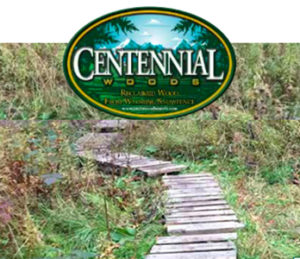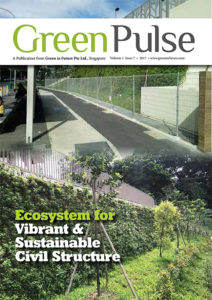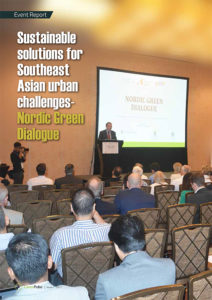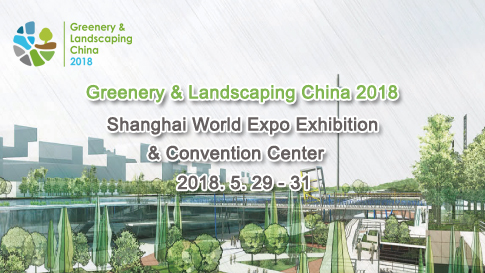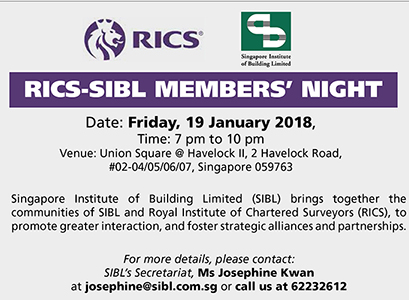
A digital publication from Green in Future updating monthly on the latest news, technology, and events to enlighten & inspire the society towards a greener future.
2017 Vol 1 Issue 7
cover story
Soil ChainTM is an ecological engineering system, which is designed for constructing vibrant and sustainable civil structure. The ecosystem is capable of constructing various kinds of permanent structures, earth embankment, and areas where land and water meet, without using any conventional hard material, or substance that could create chemical reactions.
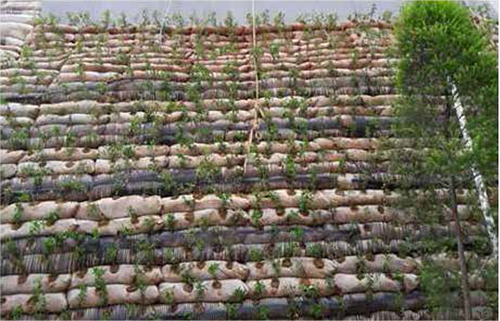
It is designed to produce a substantial reduction of air, noise and heat pollution while eliminating usage of water and energy during construction. Both the ideology and methodology are meticulously designed to improve the environment; maintain bio-diversity and protect wildlife habitats; reduce carbon footprint, and prevent wastage of natural resources.
The Soil Chain™ system is probably the first and only innovation consisting of four directional ecological engineering. Innovation adopts principles from global practices of Mechanical Stabilize Earth (MSE), with a combination of geotechnical, bio and environmental engineering. Read Full Article
event report
The Nordic Green Dialogue aimed to contribute to solving urban challenges in Southeast Asia through an exchange of ideas and concepts, technologies and policies by companies, research communities, and government. Held during the Singapore International Energy Week 2017, the event was organized by the embassies of Norway, Sweden, Finland and Denmark in Singapore and was endorsed and supported by Energy Market Authority, Sustainable Energy Association of Singapore, and Nanyang Technological University.
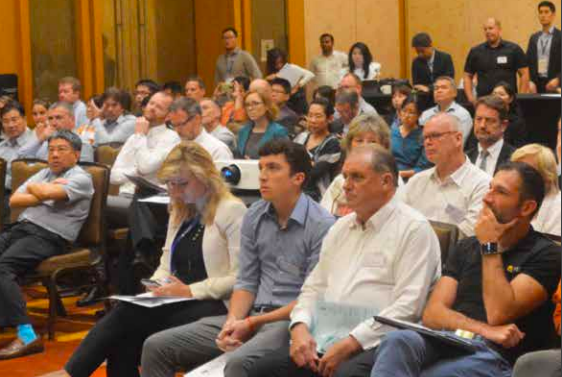
The event was around Nordic and Singaporean/Asian stakeholders in the urban sustainability area attended the event, making it a meaningful and successful activity for building networks and exchanging ideas and concepts.
“I hope that the Nordic experience in clean energy collaboration can inspire the Southeast Asian region. There could be much to gain by applying a regional approach to achieving sustainable energy security in Southeast Asia.”- The Danish Ambassador, H.E Dorte Bech Vizard. Singapore has pledged to reduce its emissions intensity by 36% from 2005 levels by 2030 and to stabilize emissions with the aim of peaking around 2030. Read Full Article
Centennial Woods™ is one of the largest providers of reclaimed wood in the world through maintaining and reclaiming the aged wood off of the hundreds of miles of snow fences lining the Wyoming highways. Snow fences endure the harsh elements to make travel safer during Wyoming’s brutally long winters.
Wyoming’s intense weather conditions are ideal for producing stunning and sustainable weathered wood. Highly sought after by green builders, Centennial Woods’ products are free of chemicals, incorporate vibrant, natural colouring and are naturally weather resistant. By developing an international market for this sustainable and carbon negative resource, Centennial Woods™ has repurposed more than 18 million feet of reclaimed wood (as of 2016), avoiding more than 18,000 tons of CO2 emissions as of 2017. The wood is certified by Bureau Veritas on behalf of FSC® as FSC® 100% Recycled. The product also qualifies for MR (Materials and Resources) in the MR3, MR4, and MR5 under LEED credits. Read more
Ebm-papst is the globally leading supplier of motors and fans. By providing optimum application and system solutions to manufacturers of Air Conditioning, Refrigeration, Ventilation, Heating, Household and Electronic Cooling Equipment, ebmpapst has developed into a global market leader within its specific market segment and has now been maintaining its outstanding position for many years.
The S-Force series is composed of five smaller series with sizes from 80 to 220 mm and is the world champion in its class in terms of air performance and pressure build-up - with first-class motor efficiency and a long service life. Read more
In this Month's Issue
Cover Story: Ecosystem for Vibrant & Sustainable Civil Structure
Event Report: Nordic Green Dialogue
Dr. Jeff's Column: Keeping our Stomachs Full in a Warming World
Products:
Special Report: Committing to creating Green and healthy streets
Dr Jeff's Column
 Keeping our Stomachs Full in a Warming World By Professor Jeff Obbard, PhD
Keeping our Stomachs Full in a Warming World By Professor Jeff Obbard, PhD
Food production is fundamentally linked to predictable seasonal weather patterns, which in turn, are the expression of stable climatic systems around the world. These systems are now shifting - thanks to the unrelenting emission of greenhouse gases and the gradual warming of our atmosphere. Fossil fuel combustion coupled to major disturbances of the world’s natural carbon sinks (forests, wetland, and peatlands) is now threatening global food security - just when there are more mouths to feed on the planet than ever before.
In its latest report, the Intergovernmental Panel on Climate Change (IPCC) concluded that global warming is now “unequivocal” and that the role of humanity is “clear”. One of the key goals of the United Nations Framework Convention on Climate Change (UNFCCC)
way back in 1992 was “to ensure that food production is not threatened”, and to achieve “a time-frame sufficient to allow ecosystems to adapt naturally to climate change”.

In hindsight, this has proven wishful thinking as the global agricultural system is increasingly exposed to warmer temperatures, rising sea levels, shifting rainfall patterns, desertification and wildfires. According to the IPCC, global food production accounts for about 10% of global carbon emissions. As I write, the United Nations World Meteorological Organization (WMO) has reported that global atmospheric carbon dioxide levels for 2016 reached 403.3 ppm, now 45% higher than pre-industrial levels and rising at an accelerating rate. Read Full Article
special report
The mayors of London, Paris, Los Angeles, Copenhagen, Barcelona, Quito, Vancouver, Mexico City, Milan, Seattle, Auckland & Cape Town committed to a series of ambitious targets to make their cities greener, healthier and more prosperous. By signing the C40 Fossil-Fuel-Free Streets Declaration, the pioneering city leaders pledged to procure only zero-emission buses from 2025 and ensure that a major area of their city is zero emission by 2030. The policies are designed to fight air pollution, improve the quality of life for all citizens, and help tackle the global threat of climate change.

The cities, therefore, commit to:
• Increase rates of walking, cycling and the use of public and shared transport
• Reduce the number of polluting vehicles on city streets
• Lead by example by procuring zero-emission vehicles for city fleets
• Collaborate with suppliers, fleet operators and businesses to accelerate the shift to zero emissions vehicles and reduce vehicle miles in cities
“Tacking climate change requires bold mobility policies in cities. The transport sector accounts 60% of CO2 emissions in Mexico City, and private vehicles represent 80% of the total fleet”, said Miguel Ángel Mancera, Mayor of Mexico City. “In Mexico City we are taking concrete actions to foster sustainable mobility with BRT corridors, cyclist infrastructure and friendly streets for pedestrians”
Advertise with us
- Need your Business Featured at Green Pulse ?
- Opportunity to advertise your company profile & products
- An exclusive write-up coverage on your services
- One portal to showcase business trends, news and events
- Contact us at editor@greeninfuture.com
Subscribe to Green Pulse
RICS-SIBL - Members' Night
Singapore Institute of Building Limited (SIBL) brings together the communities of SIBL and Royal Institute of Chartered Surveyors (RICS), to promote greater interaction, and foster strategic alliances and partnerships.
Date: Friday, 19 January 2018,Time: 7 pm to 10 pm
Venue: Union Square @ Havelock II, 2 Havelock Road,#02-04/05/06/07, Singapore 059763
For more details, please contact: SIBL’s Secretariat, Ms Josephine Kwan at josephine@sibl.com.sg or call us at 62232612
Website details : http://www.sibl.com.sg/

